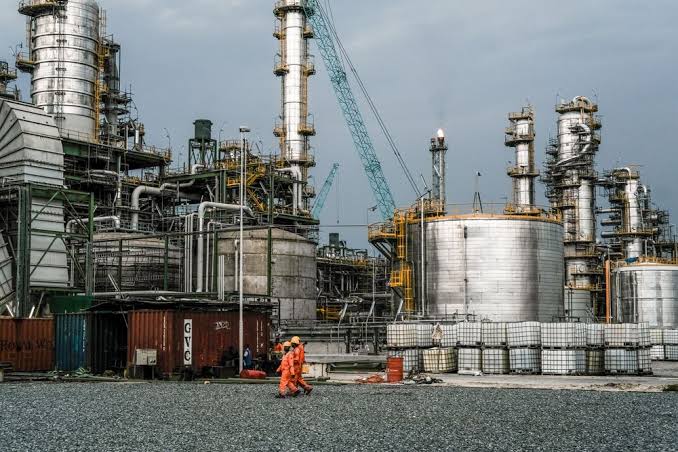Nigeria’s oil landscape is poised for a significant transformation as the Dangote Refinery gears up to receive 400,000 barrels of crude oil daily from the Federal Government under the naira-for-crude agreement.
This development, expected to last for two months, will see the refinery process a staggering 24 million barrels of Nigerian crude between October and November 2024.
The increased processing capacity will have far-reaching implications for the refinery’s operations and the local oil industry. The West African crude market is expected to become “substantially tighter” in the fourth quarter due to Dangote’s supply, according to Ronan Hodgson, a London-based analyst at FGE. This could push Nigeria’s crude exports below 1 million barrels per day.
– _Reduced Crude Exports_: Dangote’s increasing reliance on local feedstock will disrupt the Atlantic oil market, decreasing Nigeria’s crude exports.
– _Increased Gasoline Production_: The refinery’s agreement with the Nigerian National Petroleum Co. will make NNPC the sole distributor of Dangote’s gasoline production.
– _Job Creation and Economic Growth_: The refinery’s expansion is expected to contribute to Nigeria’s economic growth and create new job opportunities.
“If the refinery runs at higher rates, the West African market for gasoline and diesel imports will shrink extremely quickly,” notes FGE’s Hodgson. Vartika Shukla, Chairman of Engineers India Ltd., confirms that Dangote is already running at 60-70% capacity and will reach full capacity within months.
As the Dangote Refinery continues to ramp up its operations, Nigeria moves closer to achieving its goal of reducing costly oil product imports. This development is a significant step towards transforming the country’s oil industry and boosting economic growth.


